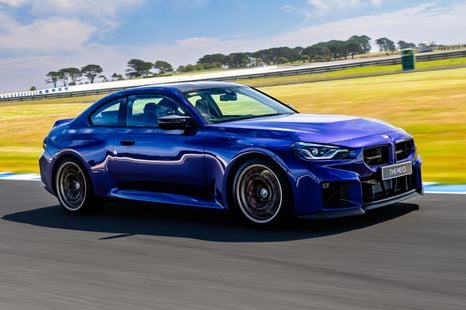

Damion Smy
2026 BMW M2 CS review: Quick drive
1 Hour Ago
Alpina has revealed the updated XB7 flagship large SUV, confirmed for Australia and set to arrive early in 2023.

Contributor
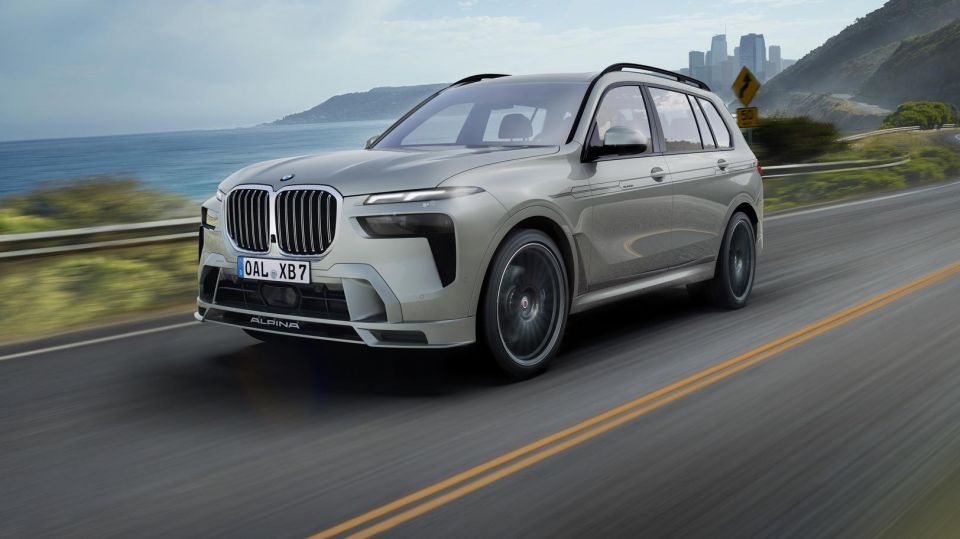

Contributor
Alpina has revealed its take on the updated BMW X7 large SUV, called the XB7.
It’s set to begin production in December 2022 and will arrive Down Under in early 2023, as confirmed by a BMW Alpina Australia spokesperson.
Offering more performance than the new BMW X7 M60i trim level, the Alpina XB7 is powered by a 4.4-litre twin-turbo petrol V8 with mild-hybrid technology producing 457kW of power and 800Nm of torque (up 67kW and 50Nm on said M60i).
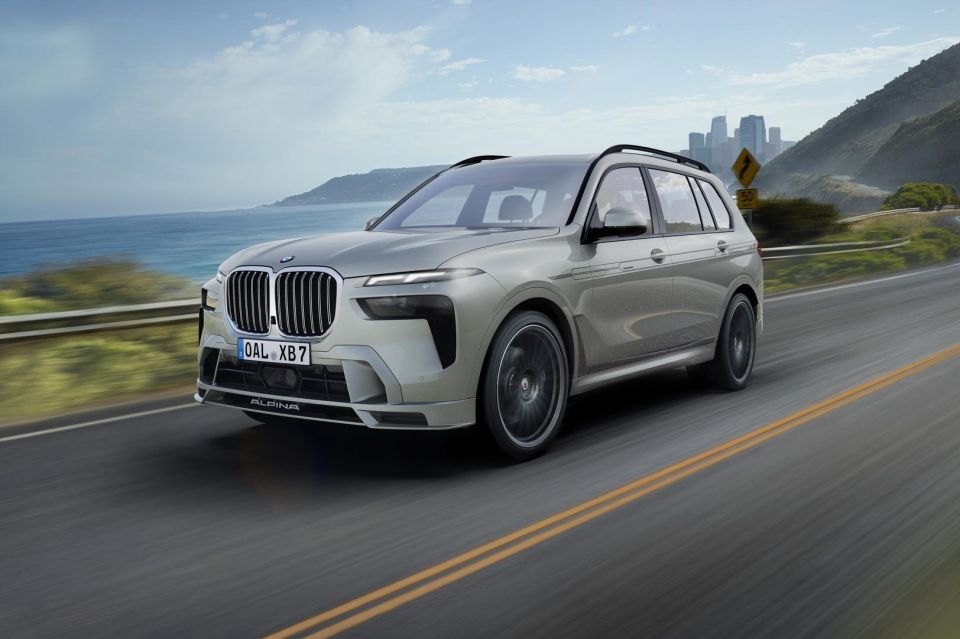
This twin-turbo V8 petrol engine is mated to a ZF eight-speed torque-converter automatic transmission, with drive sent to all four wheels.
BMW Alpina quotes a 0-100km/h sprint time of 4.2 seconds for the high-performance XB7, with a top speed of 290km/h.
Under the WLTP combined cycle, the updated XB7 consumes a claimed 12.0L/100km when equipped with the standard 21-inch multi-spoke alloy wheels.
Just like the updated X7, the XB7 receives the new split headlight design and the illuminated kidney grille. It also has Alpina front and rear bumper aprons to remind people that this isn’t a normal X7.
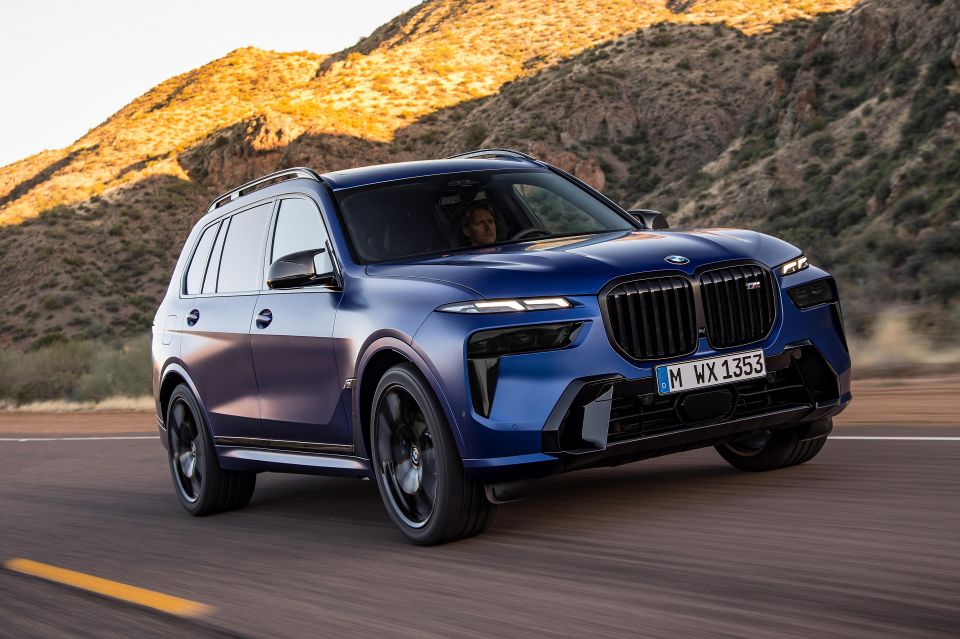
There’s also a new cross-bank exhaust manifold for the XB7 which enables it to deliver a greater V8 soundtrack.
Although standard specification hasn’t been confirmed, the XB7 now receives the BMW Parking Assistant Professional as standard. This feature allows the XB7 to autonomously park and controls the accelerating, braking, steering and changing between forward and reverse gear.
It’ll also have a blue illuminated gear selector, a “hand-finished steering wheel”, and an Alpina production plaque in classic fashion.
Ahead of the driver, the XB7 has gained the latest BMW OS8.0 infotainment system on a large curved dash with blue and green accents. This curved dash houses a 12.3-inch digital instrument cluster and a 14.9-inch central screen.
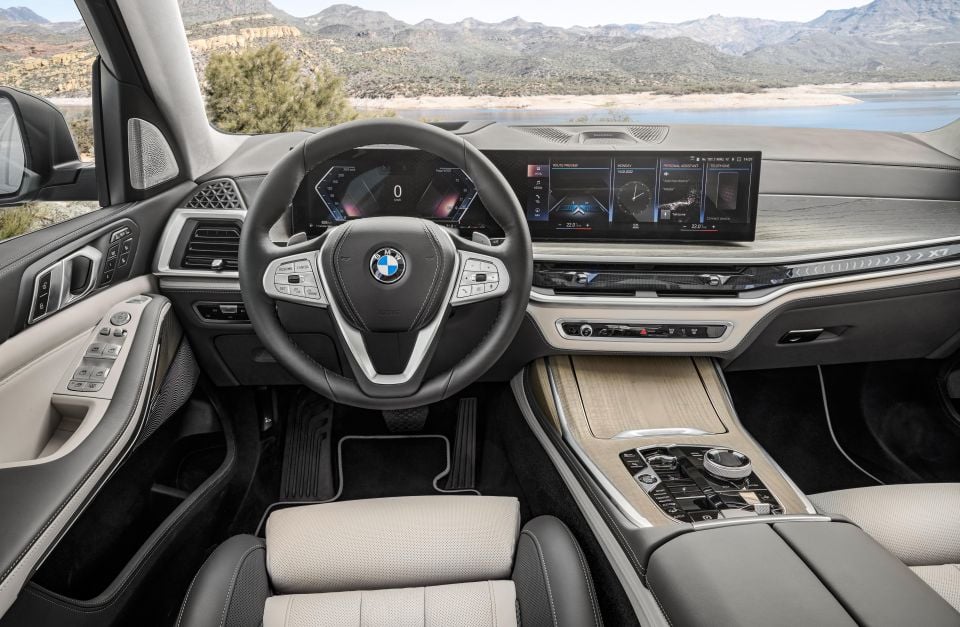
Just like every Alpina model, the updated XB7 is meant to be comfortable and has two-axle air suspension. It also has Alpina-specific dampers and active roll stabilisation with the aim of balancing driving dynamics and ride comfort.
Pricing hasn’t been confirmed yet either, but for context the outgoing XB7 was priced at $264,900 before on-road costs. This is $80,000 more expensive than the outgoing X7 M50i.
In the world of high-performance, three-row SUVs, there’s little competition.
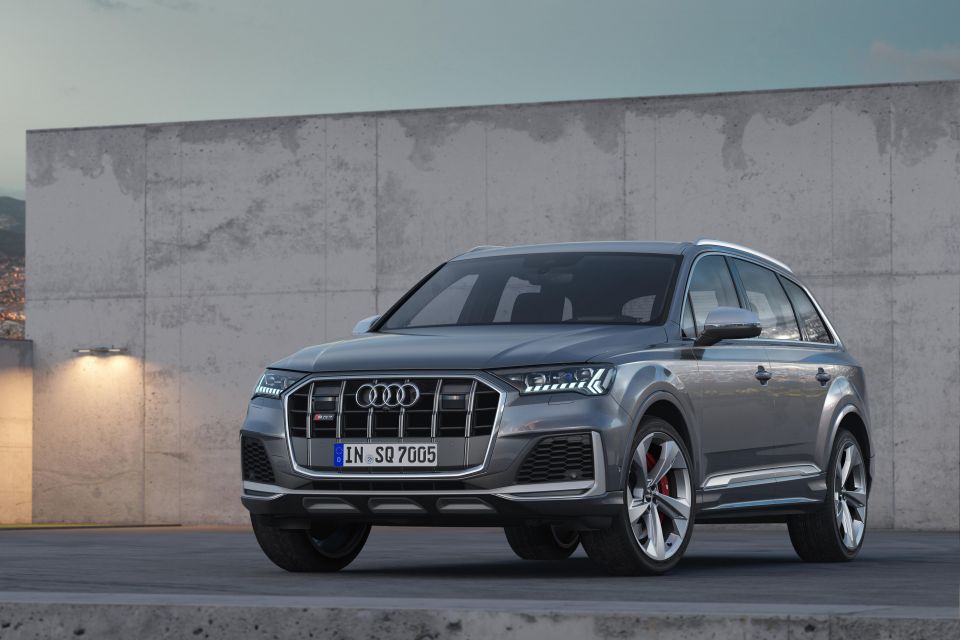
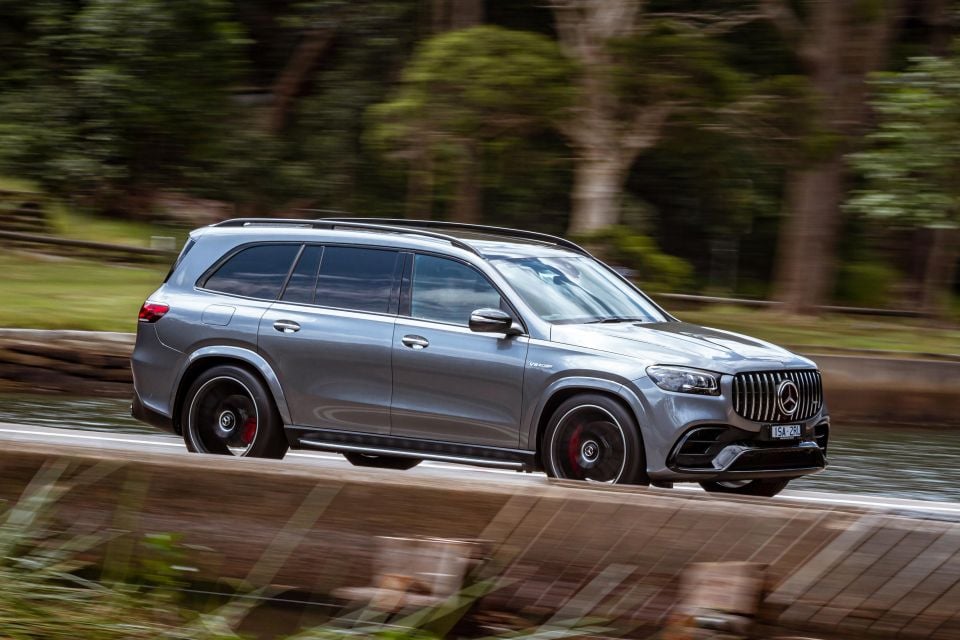
Audi’s SQ7 now uses a 4.0-litre twin-turbo petrol V8 producing 373kW and 770Nm, which is less than the XB7, but can do the 0-100km/h sprint faster in 4.1 seconds.
There’s also the Mercedes-AMG GLS63 which is powered by a 4.0-litre twin-turbo V8 producing 450kW and 800Nm.
More generally, BMW recently announced it had secured the rights to the Alpina brand, which it says will secure the long-term future of the tuning firm as part of the BMW Group.
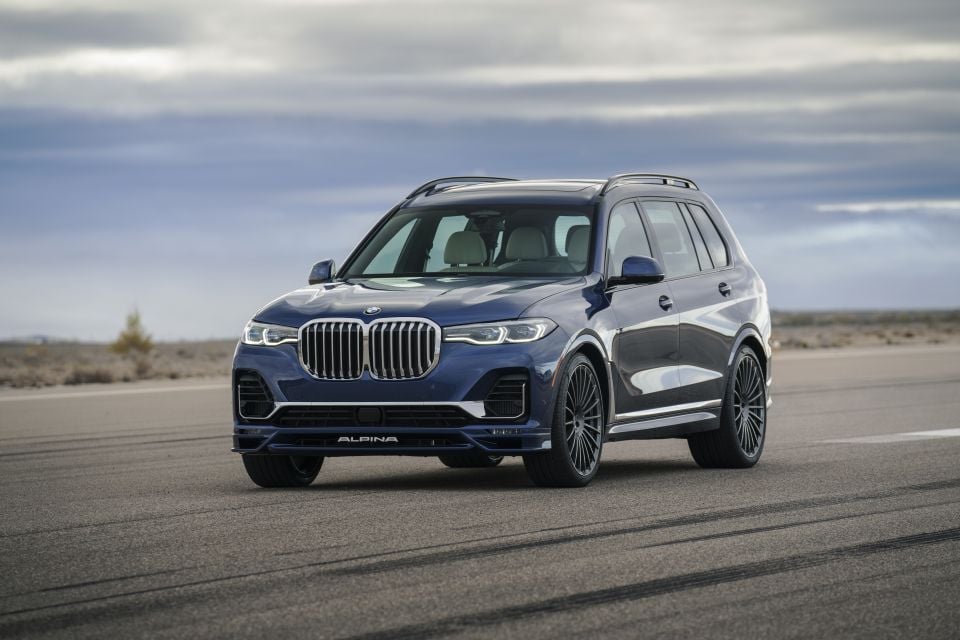
Although Alpina builds on the base laid down by BMW, the= firm does more than just tune its cars. BMW Alpina vehicles have their own VIN, and Alpina is recognised as a manufacturer in Germany.
BMW hasn’t given concrete details as to what Alpina will look like beyond 2025 when it discontinues its current vehicle program.
The Alpina team will continue to develop, manufacture and sell BMW Alpina vehicles until the end of 2025, with final assembly continuing to take place at the firm’s workshops in Buchloe.
Go deeper on the cars in our Showroom, compare your options, or see what a great deal looks like with help from our New Car Specialists.
Jack Quick is an automotive journalist based in Melbourne. Jack studied journalism and photography at Deakin University in Burwood, and previously represented the university in dance nationally. In his spare time, he loves to pump Charli XCX and play a bit of Grand Theft Auto. He’s also the proud owner of a blue, manual 2020 Suzuki Jimny.


Damion Smy
1 Hour Ago
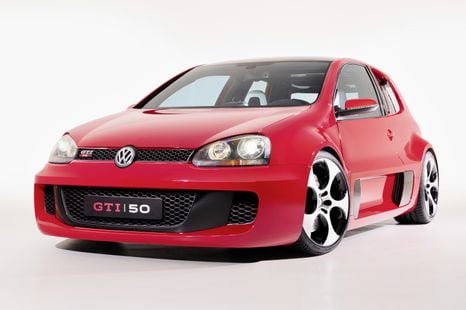

Derek Fung
3 Hours Ago
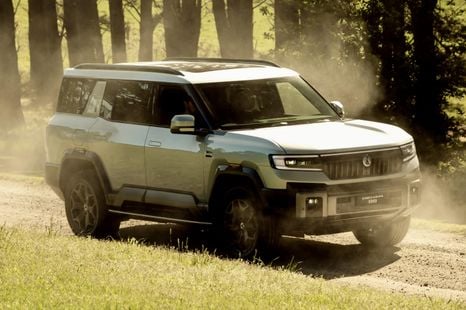

Max Davies
9 Hours Ago
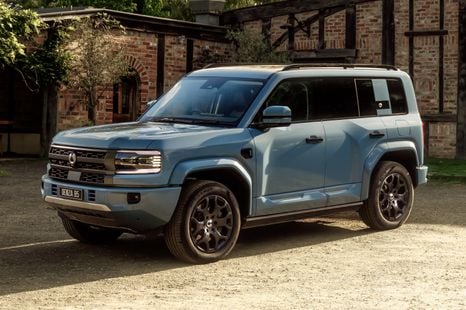

Max Davies
9 Hours Ago
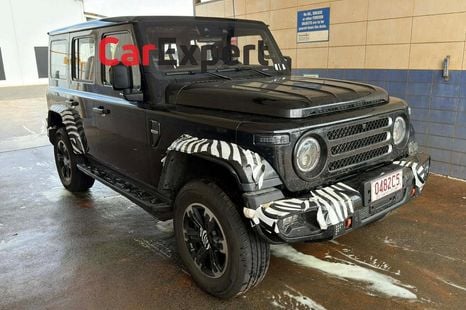

William Stopford
1 Day Ago
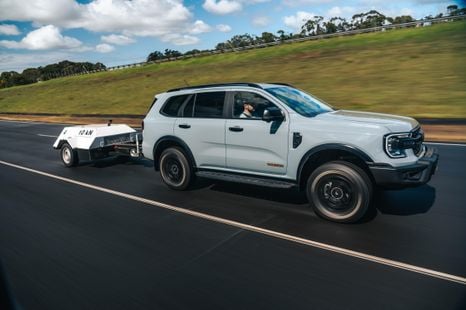

William Stopford
1 Day Ago
Add CarExpert as a Preferred Source on Google so your search results prioritise writing by actual experts, not AI.